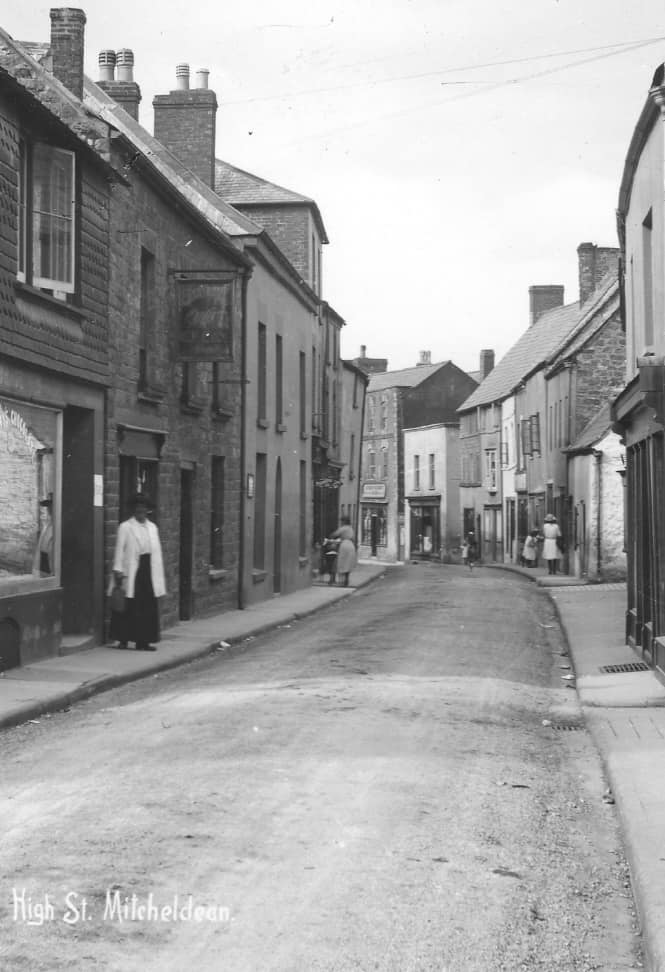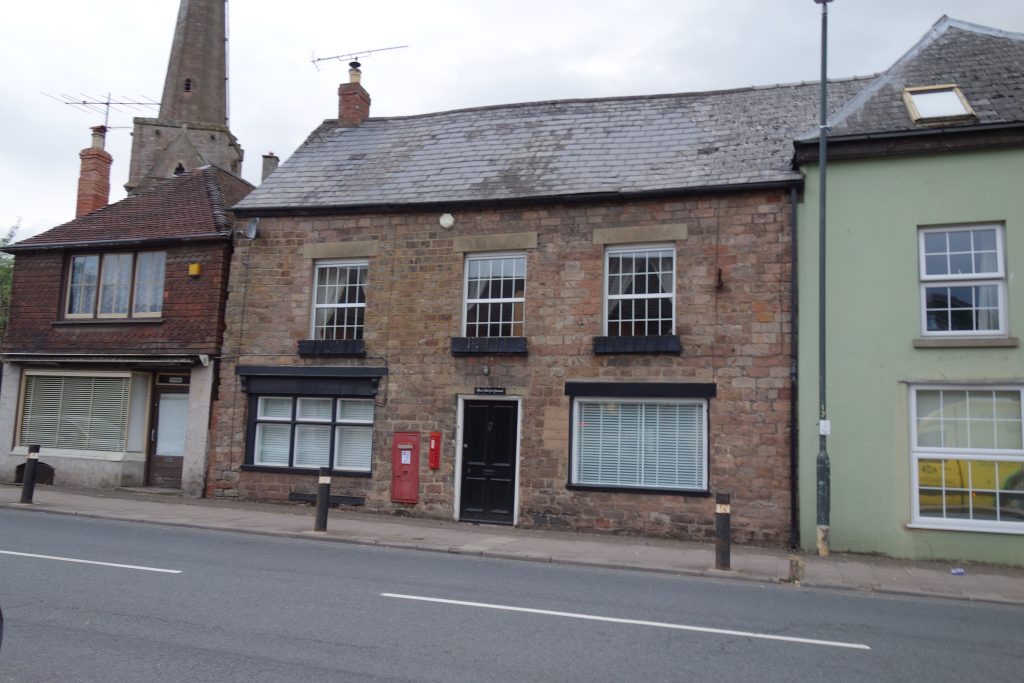The Greyhound had opened for business in the High Street c. 1865.
Gloucester Journal: February 21st 1880 – Littledean Sessions: William Virgo, landlord of the Greyhound Inn, Mitcheldean, was charged by Sergeant Mallett with being drunk on his own premises. Fined 10s. and costs.
Gloucester Journal: March 1891 – The members of the Mitcheldean brass band with a few tradesmen of the town, partook of an excellent supper at the Greyhound Inn, provided by Host and Hostess Hutton. After the removal of the cloth the chairman, Reverend Firth, submitted the usual toasts, and with a few instrumental selections and a number of songs an enjoyable evening was had.
Another newspaper report dated February 1895 says that ‘the town brass band held their annual supper at the Greyhound Inn on Monday night when about 45 sat down to an excellent spread served by host and hostess Sutton.’
The Greyhound Inn was an ale house and in 1891 had an annual rateable value of £16.0s.0d. but the value had increased by £4 in the twelve years leading up to 1903 when the annual rate was £20.0s.0d. In common with all other pubs in Mitcheldean the Greyhound was owned and tied to Francis Wintle’s Forest Brewery. It closed at 10pm.


When the property and tied houses of the Forest Brewery in Mitcheldean were put up for auction in 1923 the Greyhound inn was included in the sale particulars. It was described as ‘freehold and fully licensed’ and ‘occupying an important position for business.’ On the ground floor the stone-built and slate roofed building comprised a serving bar, private bar, tap room, sitting room, kitchen etc. At the time of the inventory the Greyhound had an unused cellar in the basement. There were three bedrooms and two store-rooms on the first floor and attics on the second floor. To the rear of the inn there was a yard ‘with entrance from Platts Row’, pot house, coal and lumber store with large room over. There was also a strip of vegetable garden opposite on the other side of the High Street.
After closure the building was converted to a post office. A Royal Mail red post box is a feature of the building. The property, opposite the Co-op store, is now residential and is named the Old Greyhound.
Landlords at the Greyhound Inn include:
1860’s Thomas Trotter
1876 William Virgo
1885, 1906 Phineas Hatton
1919 George Henry Green
1923 Mr G.E. Cox
1927,1939 Merrick Phelps

